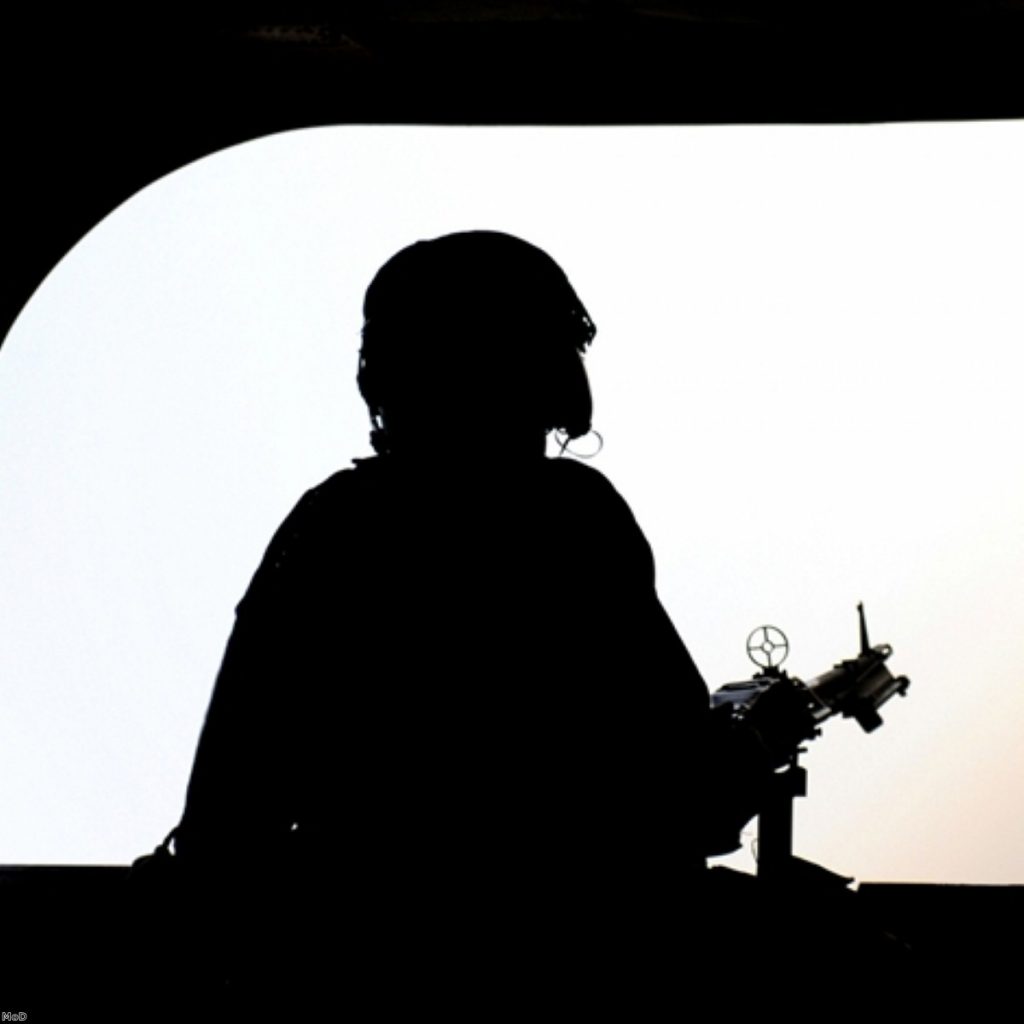MoD at war over soldier compensation
By Alex Stevenson
Outspoken comments by defence secretary Bob Ainsworth’s parliamentary aide have placed the government’s treatment of wounded soldiers under heavy fire.
Yesterday Falkirk MP Eric Joyce said Mr Ainsworth’s decision to fight additional compensation for two soldiers threatened a victory of “bureaucracy over bravery”.
His comments in the Scotland on Sunday newspaper have escalated a row about the way Britain treats its injured soldiers – and put his job as parliamentary private secretary (PPS) in danger as a result.
The Ministry of Defence (MoD) disagrees with the pensions appeal tribunal’s decision to award two soldiers additional compensation following complications from their initial treatment.
It hopes to retrieve nearly £58,000 at the court of appeal from Royal Marine Matthew McWilliams and Corporal Anthony Duncan of the Light Dragoons, who were wounded in training and shot in Iraq respectively.
Former Army chief General Sir Mike Jackson at the weekend described the “penny-pinching” move as “virtually incredible”.
The MoD believes the pair should only be compensated for their initial injury rather than subsequent health problems, a line disagreed with by Mr Joyce yesterday.
He wrote: “In this compensation case, a victory for the MoD in October at the court of appeal would come against the backdrop of a giant neon sign saying spelling out the word ‘Pyrrhic’. It would represent a victory for bureaucracy over bravery. The appeal should be dropped.”
His boss, Mr Ainsworth, has already acted following negative coverage of the case.
He has brought forward a review of compensation in the armed forces, which had been due next year, and has defended the MoD’s stance on the basis that those with the most serious injuries should receive the most compensation.
Mr Joyce believes a tactical retreat would be more appropriate on this issue, however.
In an unexpected attack on government policy he added: “Politicians have to recognise that while the public will give us a lot of rope at times, where we get the moral call profoundly wrong on a matter of how we treat our astonishingly brave service personnel, we’ll find ourselves dangling at the end of it.”
The former army major and Black Watch soldier is not expected to lose his job over the issue, which will be decided – if the MoD refuses to budge – later this autumn at the court of appeal.
But it has called Gordon Brown’s authority into question. PPS’ are supposed to be bound by the convention of collective responsibility, but Downing Street has recently insisted they are not part of the government.
“I’m not getting into the way individual ways people express themselves,” the prime minister’s spokesman said, on being questioned about Mr Joyce’s role in the government.
She added: “Clearly we need to have a compensation scheme that most fairly compensates those who have been most severely injured.”
Armed forces charity the Royal British Legion handles thousands of similar cases every year and has expressed frustration with the government’s stance on Cpl Duncan and Marine McWilliams’ cases.
“What’s been missing in all this is a spirit of fairness and generosity,” its director of welfare Sue Freeth commented.
“The government should be asking what it can do to help those who serve with such dignity to be treated with equal dignity – instead of cheating them of their rightful due.”
Speaking last week she attacked the “heartless bureaucrats” within the government which “chisel away” at soldiers’ compensation awards.
But she said politicians now had an opportunity to reflect on their conduct. At present it appears the government is only prepared to revise its position in the long-term review brought forward by Mr Ainsworth.
Defence minister Kevan Jones will take forward the review of the scheme and is now preparing for its work, with medics and legal experts being sought out to contribute.
“We will also talk to others, including military families about how to include them in this process,” he said.
“The AFCS has already been improved in a number of ways but we recognise that more needs to be done to fully meet the needs of our service men and women and I am committed to ensuring that the review is thorough and allows for all views to be considered.”
Staff at Mr Joyce’s constituency office in Falkirk were unwilling to comment over whether Mr Joyce’s government job was imperilled.
The Armed Forces Compensation Scheme (AFCS) came into force in 2005, replacing the war pension scheme relevant parts of a 1975 armed forces pension scheme.





-01.png)